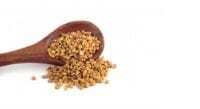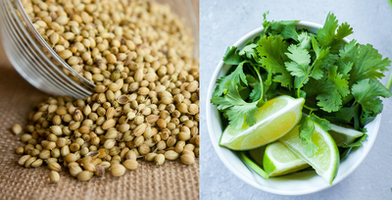
Irritable Bowel Syndrome (IBS) aka Irritable colon, can be a cause of unfathomable distress for men and women alike. The condition is often attributed to symptoms that include but are not restricted to diarrhea, constipation, bloating nausea, and the feeling of incomplete evacuation.
Other symptoms may include upper gastrointestinal symptoms such as heartburn, and chest pain. Today over 22% of the US population is believed to be suffering from a severe case of IBS. In fact, it is estimated that over 30% of the population might have suffered from this condition at some point in their lives. Moreover, it is said that women have a higher likelihood of suffering from IBS than men, the reason for which is still unclear.
With such prevalence, very few seek medical attention until the situation aggravates. Although not life-threatening, the condition can still hamper one’s overall quality of life a great deal. As such, it is something that needs to be effectively managed.
So although modern science does have an answer to IBS, it does come with a caveat of side-effects and other complications that can only cause regret in the individual seeking respite from IBS in the first place. This is why Ayurvedic treatment is quickly becoming the go-to alternative for folks seeking desperate relief from Irritable Bowel Syndrome.
What is Irritable Bowel Syndrome According to Ayurveda
When you sift through the vast text of Ayurveda, you will come across the term Grahini, which jots down a list of symptoms that bear a striking resemblance to the symptoms associated with IBS. All of these symptoms can occur due to one or a combination of the following reasons.
- Improper Eating
- Excessive Drinking
- Taking Chemical Drugs
- Refusing Natural Urges
Grahini is basically a pathological condition wherein the function and integrity of one’s GI tract are compromised. As IBS is a condition that is defined by abnormal and increased motility of the small and large intestine, Ayurveda seeks to find the reasons for such GI motility in order to overcome the condition.
3 Types of IBS or Grahani in Ayurveda
1 – Vata Type IBS
Vata Type IBS is identified with symptoms such as weight loss, loss of sleep, constipation, dry nails, mouth or throat, and diarrhea. It can be caused due to fasting, insufficient intake of food, excessive exercise, and suppression of natural urges.
2 – Pitta Type IBS
Pitta Type IBS can be identified with symptoms such as sweating, fewer, heartburn, chest pain, diarrhea, and loose stools. It can be caused due to the suppression of natural urges, excess physical activity, and excessive intake of pungent, sour, and salty foods.
3 – Kapha Type IBS
Kapha Type IBS is identified by symptoms such as difficulty indigestion, nausea, vomiting, and heaviness of the body, loose stools, and a runny nose can also be noticed. It can be caused due to frequent food intake, intake of food which can be difficult to digest, and sleeping immediately after eating.
IBS has been a problem for the human race for thousands of years. This very fact makes the ancient literature of Ayurveda the perfect option to find a permanent solution to the problem. As Ayurveda encourages us to find the root cause of GI motility, it also arms us with the most appropriate remedial practices to overcome IBS and accomplish optimal health in the process.
Ayurvedic Home Remedies or Treatment for IBS
From Yoga to traditional herbs, there are many ways in which Ayurveda can effectively help you tackle a severe or mild case of Irritable Bowel Syndrome.
Best 4 Ayurvedic Remedies to Treat IBS
1 –A Bland Diet
Your diet dictates the condition of your bowel movements. So a diet laced with unhealthy food, devoid of nutrition will only result at the beginning of Irritable Bowel Syndrome. It is very important to seek advice from an Ayurvedic practitioner when opting for a diet plan to combat IBS.
Usually, an Ayurvedic Practioner will advise his clients to undertake a bland diet that includes warm or soft foods like soups or basmati rice. The goal here is to effectively get rid of that excess ama (Toxins) in your body. So fasting can also be an effective remedy in your fight against IBS.
Fasting or indulging in a bland diet can work in naturally eliminating excessive ama from one’s system. Buttermilk can also aid in alleviating your symptoms and ultimate recovery. Other dietary options like medicated ghee and concentrated butter can both be effective in helping overcome IBS. Ghee in particular is known to rekindle a weak Agni in people suffering from Irritable Bowel Syndrome.
2 – Yoga
There is nothing a good regular session of Yoga cannot fix, and IBS is no exception to this rule. Various asanas dictated by Yoga can be employed to seek relief from IBS. Stress can be the primary reason behind an individual coming down with IBS. Although Yoga is often seen as a tool to build strength and flexibility, it is also quite effective in eliminating stress.
There are specific asanas that can be more consequential than others when undertaking Yoga for the salient purpose of overcoming Irritable Bowel Syndrome. As such, poses like the Corpse Position (Savasana) or Sun Salutation (Surya Namaskar) can be employed to witness great results in no time.
3 – Meditation and Aromatherapy
As it is quite apparent that stress is indeed the primary culprit behind IBS, meditation can be just as effective as Yoga to overcome the distressing condition. Meditation can be a serene and peaceful way to alleviate the symptoms and keep them from getting any worse.
Other anti-stress techniques like aroma-therapy and massage can also prove to be of great help in the fight against Irritable Bowel Syndrome.
4 – Herbs
There are a plethora of options to choose from when overcoming IBS via herbs. Ayurveda recommends different herbs pertaining to the type of IBS inflicting you.
Ayurveda recommends:
- Ginger, Fennel, Cloves, and Cardamom for Vata Type IBS
- Cumin, Fennel, and Coriander for Pitta Type IBS
- Ginger, Honey, Turmeric, Cloves, and Cardamom for Kapha Type IBS
Apart from the above, Triphala can be an effective herbal concoction to effectively alleviate the symptoms of IBS.
The Bottom Line
IBS is a condition that affects many and will continue to do so if we choose to follow a sedentary lifestyle riddled with an improper diet. Ayurveda has, for thousands of years, prescribed remedies that can not only alleviate the symptoms affiliated with IBS but also improve one’s quality of life tenfold as a result.
It is very important to understand the root cause of IBS and which dosha type Grahini/IBS you are suffering from to find an effective solution to your ordeal. We highly recommend seeking consultation from an Ayurvedic Expert to help you find the right solutions and guide you towards the right remedies in order to overcome IBS for good, once and for all.
Note: The information in this article is intended for your educational use only and is not a substitute for professional medical advice, diagnosis, or treatment. Always seek the advice of your physician or other qualified health providers with any questions you may have regarding a medical condition and before undertaking any diet, supplement, fitness, or other health programs.






